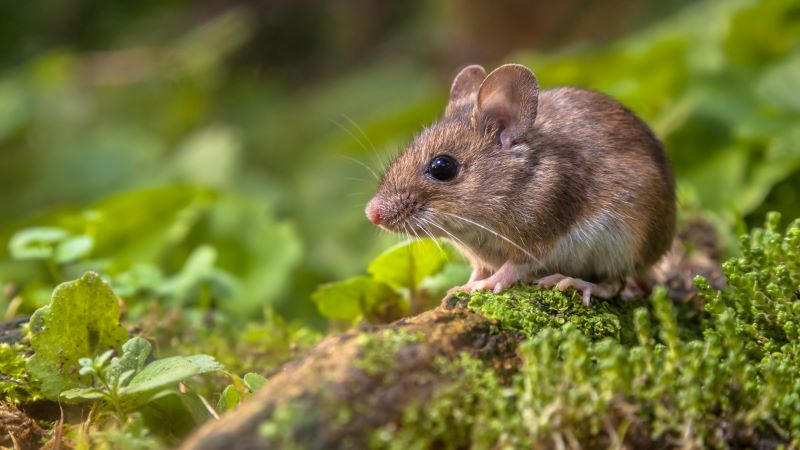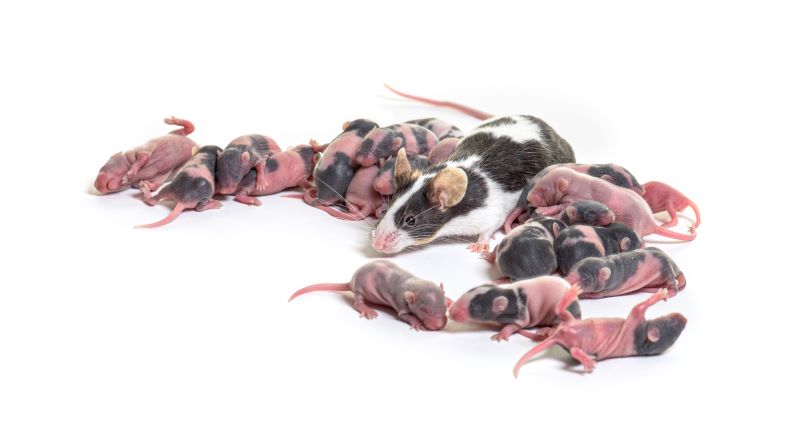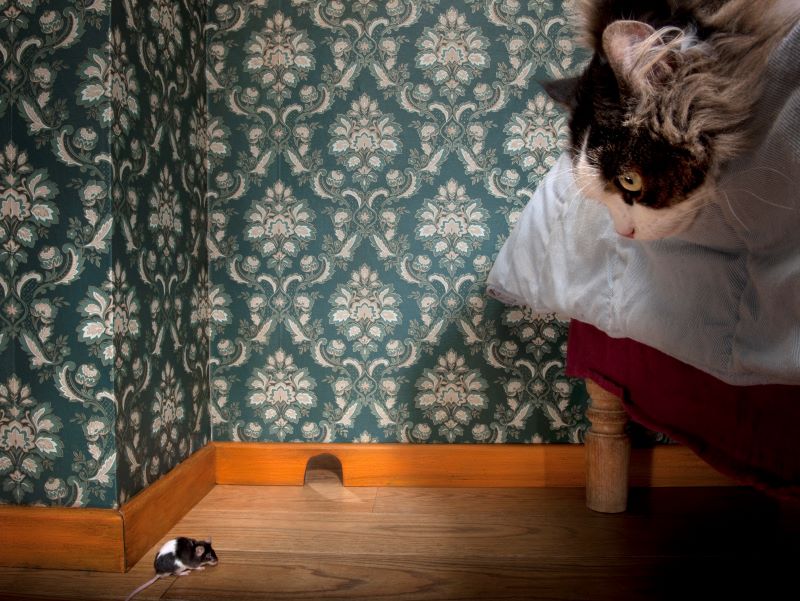READ ALL ABOUT IT
CHECK OUT OUR BLOG FOR CHICAGOLAND & SOUTHERN WISCONSIN
What to Do When You Find Mouse Droppings
No one wants to find mouse poop in their home. Unfortunately, pests happen. If you believe you have found mouse droppings in your home, it’s important to take the right steps. First, you should try to make sure that they’re actually mouse droppings. Mouse droppings may be confused with roach or even bat droppings. Mouse droppings are typically an eighth of an inch or a quarter of an inch in length. They may also be pointed on both ends. For comparison, roach droppings are smaller and blunter. They also have more rigid edges while mouse poop may be more smooth. Or, if you don’t want to spend that much time analyzing mouse poop, contact Skeeter Beater if you believe you might have a mouse problem. Exterminators are the best solution for potential pest problems. They know how to use dangerous pesticides and identify pesky pests.
Mouse Poop
If you believe you’ve found mouse droppings, it’s very important that you clean them up properly. Mice, as well as other pests with similar droppings, can carry dangerous diseases. These diseases can be spread through their fecal matter, making it vital that you clean up correctly. For attics and sheds, you should wait about 5 days after removing the pest to remove the droppings. Harmful viruses and bacteria are unlikely to survive in the feces after a few days. Sometimes, you might not be able to wait that long to clean up the droppings if they’re directly in your home.
To clean up droppings, be sure to open windows and doors to allow for plenty of ventilation. Be sure to wear protective gear like latex gloves and face masks. It’s very important that you don’t sweep up mouse droppings. This can stir up feces particles into the air and potentially make you or others sick. Instead of sweeping, start the cleaning process by spraying the droppings with disinfectant. A mixture of bleach and water works as well. For bleach solutions, let the mixture soak for about 5 minutes. For other disinfectants, follow the manufacturer’s instructions.
After the droppings have been disinfected, use a paper towel to clean up the mess. Then throw the droppings and paper towel away. Once you’ve thrown the droppings away, disinfect anything else that might have come into contact with the mouse or its droppings. Lastly, wash your hands.
Best Way to Get Rid of Mice
The best way to get rid of mice is to call the exterminators at Skeeter Beater. Getting rid of mice can be difficult if left to individuals with no professional experience. Even identifying if the pest is a mouse can be difficult without expert knowledge. Professional exterminators have the knowledge and expertise necessary to handle mice infestations. They can use that knowledge to identify the problem and offer specific solutions based on your needs. There isn’t an alternative to exterminator expertise.
While experts like Skeeter Beaters are the best solution for getting rid of mice, there are some preventative measures you can take. These are steps that might help prevent mice infestations in the first place. The best prevention is to stop mice from getting into your home to begin with. Try to seal any cracks, holes, or crevices around your home. Mice often use these to get into and around your home. Next, remove clutter from your yard. Mice as well as other pests can hide in things like wood piles near your house.
Mice are drawn to the food in your home, which means that cleaning up can go a long way. Don’t leave food out for mice to get to. Keep food stored in pantries and fridges. Keep boxes of food like cereal or crackers closed tightly. Try to clean up any crumbs that might be attracting mice. In addition to cleaning, try adding mint to areas you suspect mice visit. Mice hate the smell of mint, which makes it great for keeping them out of your kitchen. While essential oils may not be effective in pest control, mint can be very helpful. Lastly, if you’re looking to add a new furry friend to your home, cats can be great at killing mice. While not every cat is going to be a great hunter, just the smell of a cat is enough to scare mice away.
Mouse Nest
Like many other animals, mice build nests to house their babies. As if one mouse wasn’t enough, a nest full of babies is much worse. Mice tend to build their nests out of things like paper, fabric, and anything else they can get ahold of. They shred these materials and shape them into a dome that will house their offspring. Mice tend to stay close to their nests. They don’t go more than 25 feet from their nests most of the time. Mice tend to build nests near warm areas in your home. They can often be found under appliances like stoves or near hot water heaters. Kitchens are also very popular for mice nests since mice can find food without having to stray too far from their home. Nests are also common within walls and low cabinets. When looking for mouse nests, be careful to avoid any potential mouse droppings. Since the nest is where they spend most of their time, there are bound to be a lot of droppings near the nest.
Be careful when disposing of mouse nests, as they can house many of the same diseases in mouse droppings.
Dealing With Mouse Droppings
If you find mouse droppings in your home, don’t panic. Contact the experts at Skeeter Beater pest control. When dealing with mouse droppings, it’s very important to be careful when cleaning up. Droppings can have harmful diseases that can be spread by air. One should also look out for potential mouse nests which can harbor many baby mice at once. Mice can reproduce quickly, which makes a mouse nest very problematic. The best way to get rid of mice is to contact a professional. However, preventing future infestations can be handled easily at home by sealing up holes, using mint, or even adopting a furry friend. No matter how you plan on preventing future infestations, start by calling the professionals at Skeeter Beater.



